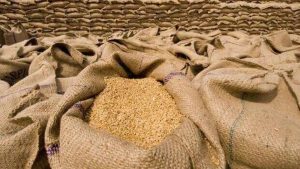Your diet has a big impact on how strong your immune system is. Your body’s health and strength are maintained by a robust immune system. And certainly, regular exercise does help you avoid disease and infections. But, when it comes to good nutrition, people often forget to include nutrient-rich foods in their daily meals.
You must be wondering what foods specifically support a healthy immune system. A few super vegetables provide vitamins and minerals that can strengthen your immune system. Here are the five vegetables you should include in your diet every day:
Garlic
The most popular natural treatment for colds and other ailments is garlic. We use garlic as one of the primary ingredients in our recipes because it is also regarded as an infection fighter. Due to its anti-viral and anti-microbial characteristics, garlic might strengthen our immune system. Moreover, it includes allicin, which helps your immune system fight off illnesses like the flu and other infections.
Bell Peppers
Who enjoys eating bell peppers? Most significantly, they are high in vitamin C and are a wonderful source of fibre and antioxidants. Also, it helps your innate and adaptive immune systems’ cellular activity. You can get three times more of your recommended daily intake from one cup of bell peppers.
Green Leafy Vegetables
Spinach, kale, broccoli, and cabbage, you name it. When your body prepares to battle a pathogen, they provide your body with folate and vitamin B, which aid in the production of immune cells. Moreover, substances known as glucosinolates will make you feel better when you are ill because they reduce inflammation brought on by killer T cells.
Spinach
Because it contains a lot of folate, vitamin A, vitamin C, fibre, magnesium, and iron, spinach is one of the best superfoods. These nutrients can support healthy immune function and give your body the resources it needs for cell division and DNA repair.
Broccoli
Beta-carotene, potassium, magnesium, zinc, and iron are all abundant. Because one cup of broccoli has as much vitamin C as an orange, this nutritional powerhouse aids in maintaining a healthy immune system. It also contains vitamins (B1, B2, B3, and B6).
Garlic
Another substance that many people use when they are ill is ginger. Ginger may help lessen inflammation, which can lessen inflammatory disorders and a sore throat. Ginger might also alleviate nausea. Gingerol, a compound related to capsaicin and utilised in many sweet foods, gives ginger some heat. Ginger may potentially have cholesterol-lowering benefits and lessen chronic discomfort, according to a reliable source.
Almonds
Vitamin E typically loses ground to vitamin C in the prevention and treatment of colds. A healthy immune system, however, depends on this potent antioxidant. It is a fat-soluble vitamin, which implies that for adequate absorption, fat must be present. Almonds, for example, are high in the vitamin and also contain good fats.

Sunflower seeds
Nutrients found in sunflower seeds include phosphorus, magnesium, and vitamins B-6 and E. Immune system function is regulated and maintained by vitamin E. Avocados and dark leafy greens are two other foods strong in vitamin E.
Sweet potatoes
Sweet potatoes are high in beta carotene, a type of antioxidant that gives the potatoes’ orange skin. Vitamin A is found in beta carotene. It promotes skin health and may even offer some protection against skin damage. UV protection from a reputable source.
More ways to prevent infections
The key to good nutrition is variety. Even if you eat one of these foods on a regular basis, it won’t be enough to help you fight the flu or other infections. Pay attention to serving sizes and recommended daily intake to avoid getting too much of one vitamin and not enough of others.
Eating well is a good place to start, but there are other things you can do to protect yourself and your family from the flu, cold, and other illnesses.
It is critical to remember that the immune system is intricate. Eating a healthy, balanced diet is just one way to support immune health.
Other lifestyle factors that may affect immune system health, such as exercise and not smoking, must also be considered.
Anyone who gets colds or other illnesses frequently and is concerned about their immune system should see a doctor.
Visit us- kisansabha.in



